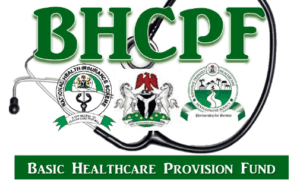NCDC issues Lassa fever public health advisory
The Nigeria Centre for Disease Control (NCDC) has issued a Lassa fever Public health advisory to Nigerians.
In the advisory, the Director-General, NCDC, Dr Chikwe Ihekweazu, said that people of all age groups who come in contact with the urine, faeces, saliva or blood of rats are at risk of getting Lassa fever.
Others at risk, he said, are people living in rat infested environments which increase their chances of coming in contact with rats and people who consume potentially contaminated food stuff especially those left open over-night or dried outside in the open.
Others, he said, are people who handle or process rodents for consumption and people who do not perform hand hygiene when appropriate.
To reduce the risk of Lassa fever, Ihekweazu advised Nigerian to ensure proper environmental sanitation, keep their environments clean at all times and block all holes in homes to prevent rats from entry.
“Cover your dustbins and dispose refuse properly. Communities should setup dump sites very far from their homes to reduce the chances of having rodents within homes.
Store foodstuff like rice, garri, beans, corn/maize etc. containers which are well covered with tight fitting lids
”Avoid drying food stuff outside on the floor, roadside where it will be exposed to contamination. Avoid bush burning which can lead to displacement of rats from bushes to human dwellings.
“Eliminate rats in homes and communities by setting rat traps and other means. Practice good personal hygiene by frequent washing hands with soap under running water /or use of hand sanitizers when appropriate.
”Visit the nearest health facility if you notice any of the signs and symptoms of Lassa fever as mentioned earlier, avoid self-medication,” he advised.
The NCDC boss advised healthcare workers to practice standard precautions at all times: i.e. wearing gloves while handling patients or providing care to an ill patient and relative.
He also called on healthcare workers to maintain a high index of suspicion for Lassa fever i.e. be vigilant and lookout for signs and symptoms of Lassa fever.
“Any febrile illness that has not responded to 48 hours use of anti-malaria or antibiotics should raise an index of suspicion for Lassa fever.
”Relatives who care for sick persons with unexplained illnesses at home, including: doctors, nurses and other health workers providing direct patient care in the absence of standard precautions must be cautious.
“To reduce the risk of Lassa fever, the hospital staff must clean and disinfect contaminated surfaces, materials and supplies with adequate protective gear,” he said.
Reports state that the NCDC activated a National Emergency Operations Centre (EOC) with an inter-disciplinary, multi-partner technical team to ensure a well-coordinated response and swift control of Lassa fever outbreaks across affected states.
Confirmed cases are being treated in the designated treatment centers in the affected states following optimized standard of care protocols. Guidelines for appropriate case management and Infection Prevention and Control (IPC) measures have been disseminated to the different states.




